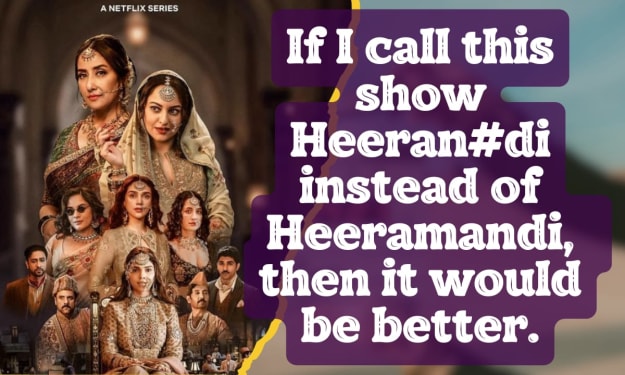What The Confessions Of A Shopaholic Movie Teaches Us About Money And Life
Beyond knowing that it does not grow on trees. The lessons are timeless.

Whether it is ironic, or an appropriate wake up call; money is more important than ever, even though our hard earned cash is becoming more and more worthless. On the flip side, Rebecca Bloomwood's clothes were not in the end. Let's face it, we all have addictive tendencies, even though calling such as a vice is a more softer approach. And then again, not when you have debt collectors (who actually stalk you, and you would not want them to fall in love with you when all is said and done) chasing you for $9K of (bad) consumer debt, of which Rebecca Bloomwood (played by Isla Fisher) was experiencing first hand in the Confessions of a Shopaholic movie, directed by PJ Hogan. If only Rebecca could print some more Prada? Forget it. At best that is illegal, and no conspiracies here.

A timeless classic, irrespective as to whether you love the smell of cashmere and leather, or you avoid the shops like you have an allergy to shellfish; it is fine to finally agree that this movie ingrains some valuable insights into the world of money, and perhaps inching you one step closer to becoming a really "successful saver." Or to up the ante on your savings plan. There is always some room for improvement.

Some things in life do not make a grain of sense, and getting into consumer debt (personally) is not one of them. The irony behind that is that Isla Fisher (as an actress, not in real life) was also an ambassador for the ING bank in Australia, in addition to working for Successful Saving in this movie, while her high end luxury fashionista lifestyle is getting her into dire straits on her credit card. Spoiler alert: she turns down her dream job in the end.
The main moral of the movie is to not get into any form of consumer debt. Consumer debt kills, because it is on items that generally depreciate in value; even though vintage clothing can be seen as an investment that can yield great returns, and only with the right investment strategy in place; although that does not compensate for the financial stress that blossoms forth. With that, and the right support system (the new coordinator at the shopaholics anonymous group in the movie); Rebecca Bloomwood was able to gain their support and cooperation in helping her sell off these goods/clothing items that landed her in significant debt in the first place. This is where a return on her investment was reaped, yet we do not know how much of that $16K was already paid off. Derek Smeath (the debt collector who was actually stalking her, and for obvious reasons) was chasing up a significant amount.

Bad debt can also cause a train wreck of embarrassment after embarrassment. The girl in the green scarf was honest about her shopaholic tendencies, and how her mothers values around shopping got her into this endless unconscious loop of weak impulse control, of which had a knock on effect in Rebecca's career and friendships.

This movie also epitomises the importance of making amends when things do not go your way, and for knowing and telling the truth. The truth sets Rebecca free at the end, and same with her editor Luke Brandon (played by Hugh Darcy) when he had an epiphany - all the knowing that he could achieve way better if he ends up working for himself. He knew that quality journalism comes when writers are given their own voice. You are ultimately responsible for your own problems in life. Being responsible begins with awareness, and knowing that you are a shopaholic is the first step in breaking down that addiction. Like any addiction really. Addictions can create a lot of clutter and pain in your life; and this movie about shopping addictions and in overcoming them with a bit of willpower and finesse is seriously highlighted. Clutter clouds your mind, and that good old judgement sometimes. Never ever copy from a book. That is called plagiarism. The latter is worse when you do not end up paying for such book in the end.
The importance of hard work and persistence takes you far, and can give you access to some worthy events, in addition to knowing how to engage and persuade your audience. This is what kept Rebecca's job at Successful Saving magazine alive, until her boss (now partner) brought her over to write a column for his new publication.

In order to get ahead, you need to know how to save your hard earned money. For those moments for when things do go south; having some hard earned moolah in an emergency savings account will help tide you over. Rebecca's parents (on the contrary) saved so hard, that they were able to buy a caravan in the end. Delayed gratification is key here. That is something that Rebecca certainly would have appreciated in the movie, despite its happy ending, and thankfully her tip top negotiating skills came to save her bacon in so many ways. With the latter, you will know what yours truly means if you see this movie. Nothing wrong with a confession or two to share with the world.
About the Creator
Justine Crowley
Freelance Internet Moderator/UX Writer/UX Consulting Designer/Graphic Designer
http://smashwords.com/profile/view/JustineCrowley
linkedin.com/in/justinecrowley
Lives in Sydney, Australia. Loves life.






Comments
There are no comments for this story
Be the first to respond and start the conversation.